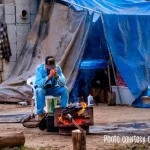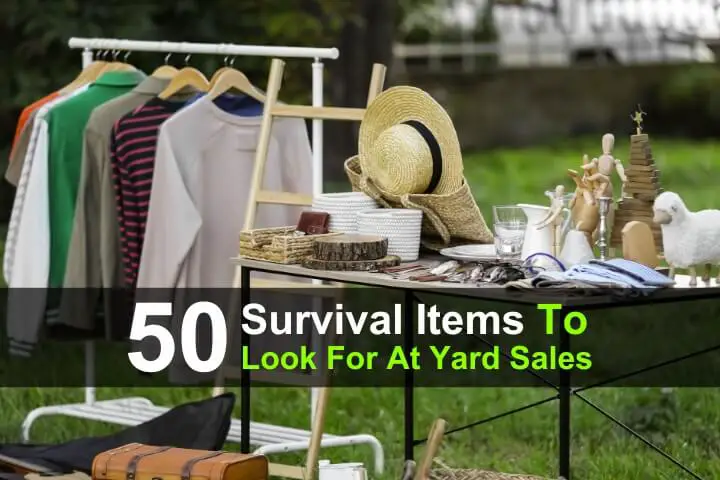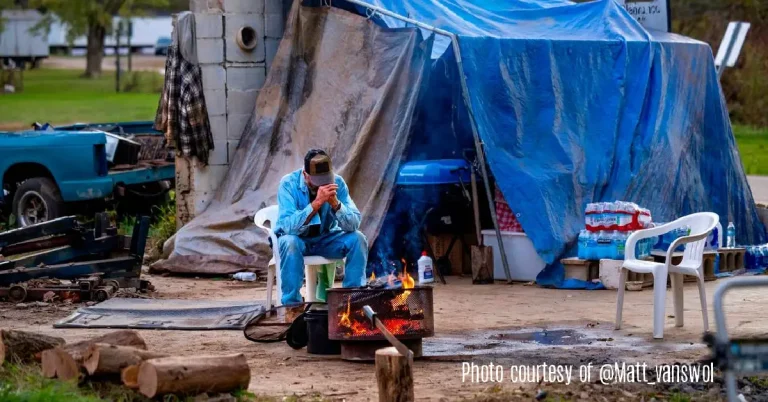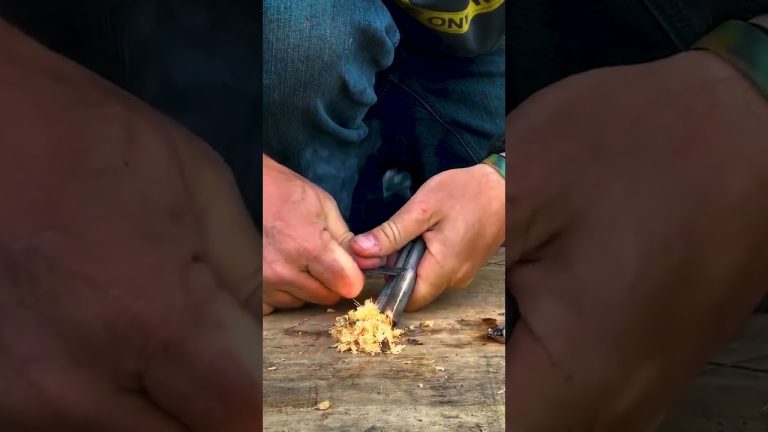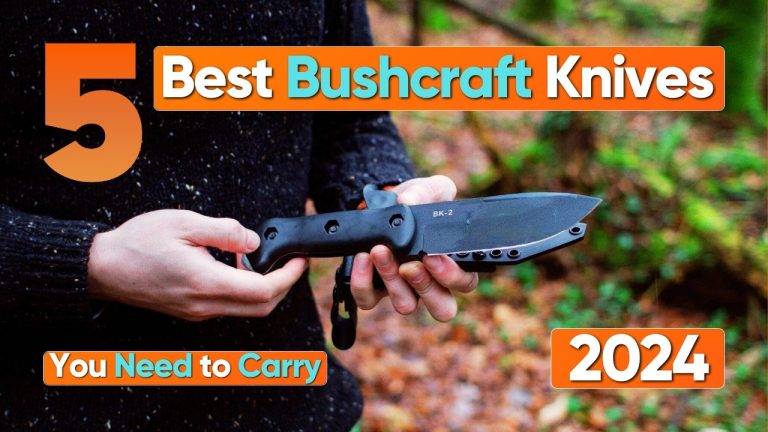Estimated reading time: 8 minutes
The most frustrating thing about emergency preparedness is how expensive it is. Yes, there are plenty of survival skills you can learn for free—and that’s important to do—but to prepare for any disaster or long-term crisis, you have to stock up on gear and supplies, and that can cost a lot of money.
To get as many supplies as possible for as little money as possible, there are many things you can do. You can build your own survival items, and you can check flea markets, discount stores, military surplus stores, or websites where you can trade with others.
But for some really incredible deals on survival gear, one of the best places is you can check is yard sales (or garage sales). Oftentimes, people having yard sales just want to clear the clutter out of their homes and are willing to part with some great supplies for very little money. I once found a Lodge cast iron skillet for only $5!
Before you head out, write down or print out a list of items you’re looking for. You might not even have to check it, but writing it down will help you remember, and you can look it over before rummaging through your neighbors’ leftover stuff.
Want to save this post for later? Click Here to Pin It On Pinterest!
Here’s my personal list of 50 survival items to look for at yard sales.
1. Archery Equipment – Bows and arrows can be used for hunting and defense when firearms aren’t an option. Plus, you can reuse the arrows.
2. Axes and Saws – Crucial for gathering and chopping firewood, or for clearing debris.
3. Backpacks and Bags – These will help you organize and transport supplies during an emergency.
4. Bicycle – During a long-term crisis, gas might be unaffordable or unavailable. Having a bicycle to get you around town could be hugely helpful. If you can, find one with a trailer.
5. Binoculars – Great for hunting and scouting. The ability to see objects or danger from a distance could be very helpful.
6. Blankets – Especially important in the wintertime. Look for wool blankets, or even Mylar blankets if they have them.
7. Board Games and Puzzles – I know these aren’t technically “survival items,” but a long-term crisis where the power is out can get very boring. Having ways to entertain yourself and the family will be a huge morale booster.
8. Books on Survival Skills – If the Internet is down, you’ll want to have some guides on first aid, foraging, and outdoor survival. (By the way, here’s our list of the 100 best survival books.)
9. Buckets – Buckets are incredibly useful. You can use them for all sorts of prepper projects, or you can grow food in them. If you see any collapsible buckets, get those, too.
10. Camping Toilets – If the water isn’t running, you won’t be able to flush your toilet. Having a camping toilet will be helpful. Or you could make your own.
11. Candles and Lanterns – Make sure you have plenty of ways to light your home during a power outage.
12. Canning Supplies – Look for canning jars and either a water bath or pressure canner. That way you can stockpile fruits and vegetables without them going bad. Note: Canning rings can be reused, but not the lids.
13. Cast Iron Cookware – The BEST cookware for cooking outdoors, whether it’s a skillet or a Dutch oven. They’re versatile and they can last a lifetime.
14. CB Radios – If the cell phone towers aren’t working, CB radios are a great communication alternative. Just remember that anyone could be listening in.
15. Chainsaw – Great for clearing large debris and cutting firewood. Make sure it’s gas-powered.
16. Cookbooks – Without the Internet, you won’t be able to look up any recipes. Make sure you have some good cookbooks.
17. Fire Extinguishers – Without a functioning fire department, fires could get out of hand. Make sure you have a fire extinguisher so you can stop a fire before it spreads.
18. First Aid Supplies – Grab any bandages, antiseptics, or medical tools you can find. You can’t have too many of them.
19. Fishing Gear – If you’re good at fishing, make sure you have plenty of fishing equipment. The more sources of food you have, the better.
20. Flashlights and Headlamps – I already mentioned candles and lanterns, but you also need a light you can carry with you. Headlamps are particularly useful when working int he dark.
21. Gardening Tools – If you can, grow a victory garden during hard times. You may need to hide it from your neighbors, though.
22. Grills or Camping Stoves – If you don’t already have a camping stove or at least a grill, get one ASAP. You might not be able to use your oven or stove.
23. Ham Radios – Other than satellite phones, this is your best option for long-distance communication with cell phones aren’t working. However, you’ll need to get a license.
24. Hand Crank Radios – This will keep you informed during emergencies without needing batteries. Having some idea of what’s going on out there will be immensely helpful.
25. Hiking Boots – If you need to go hunting or foraging, be sure you have some good hiking boots. You don’t want a foot injury during a time when hospitals are overcrowded or first aid supplies are scarce.
26. Knives – Crucial for many tasks in survival situations. A good knife is a cornerstone of any survival kit.
27. Manual Kitchen Appliances – In order to cook without power, you’ll need some kitchen gadgets that work without power such as hand-crank blenders or grain mills.
28. Maps and Compasses – Must-have navigation tools when technology such as GPS fails. Be sure you have paper maps of your local area.
29. Multi-tools – These are indispensable for a wide range of tasks in survival scenario. Keep one with you at all times.
30. Old Phones – If it’s available in your area, get a landline phone plan and a phone that uses a traditional phone jack (not the cable). It may still work when the power is out.
31. Outdoor Clothing – During a long-term crisis, you’ll likely spend more time working outdoors than usual. Especially during the winter, you need some good quality outdoor clothing.
32. Portable Solar Panels – If you’re lucky, you might come across a mini solar panels. These are great for keeping devices charged and essential for bug out bags.
33. Portable Stove – Look for small stoves like solo stoves, biolite stoves, and Coleman single-burner stoves. These are great to have when bugging out or just everyday cooking.
34. Protective Gear – Depending on the type of disaster, there could be dust and detritus in the air. Be sure to wear protective gear when you go outside.
35. Rain Barrels – For collecting and storing rainwater. Even if you can’t collect rainwater, you could still store lots of water this way.
36. Rope and Bungee Cords – You’ll need these for building shelters, securing supplies, and any number of other things.
37. Shovels – A shovel is important for gardening, clearing debris, digging latrines, etc.
38. Sleeping Bags – Great to have if you’re bugging out, but they’ll also help keep you warm during a winter power outage.
40. Tarps – Great for creating shelter, collecting rainwater, or covering up broken windows or holes in the roof.
41. Tent – While this is normally for camping, you may need a tent if you have to evacuate your town and there are no available hotel rooms in driving distance.
42. Tool Kits – You’ll need some basic tools for repairs and maintenance, especially if you can’t just open the phone book and call a handyman.
43. Walkie Talkies – These have a pretty short range, but they can still be useful for communication if you’re all exploring the same area or working in the same general area.
44. Water Bottles – Reusable water bottles, but also other containers such as Yetis and canteens, would be very useful in a survival scenario.
45. Water Filters and Purifiers – The tap water might not be safe to drink. And if there’s no tap water at all, you’ll need a way to purify any water you collect.
46. Waterproof Containers – There are certain items such as electronics or fire-starting materials that need to be kept dry. Waterproof containers help with that.
47. Whistles – If you’re going through a damaged building or collapsed house in search of survivors or supplies, a whistle can alert other people if you’ve found something or if you’ve gotten hurt yourself.
48. Wind-up Clocks – Use these to keep track of time without any electricity.
49. Wool Clothing – Wool can retain body heat even when wet, making it ideal for staying warm in wet conditions.
50. Work Gloves – As I already mentioned, you want to avoid injuries as much as possible in a disaster, so be sure to wear work gloves when doing any kind of manual work.
Like this post? Don’t Forget to Pin It On Pinterest!
You May Also Like:
